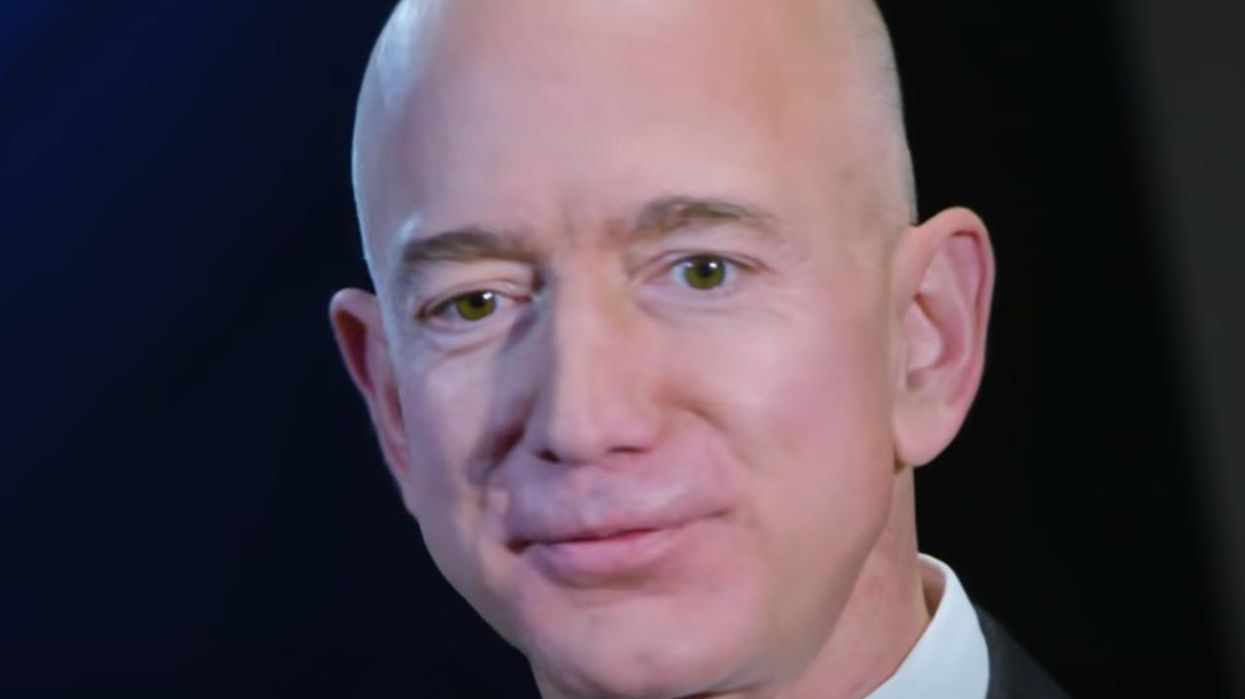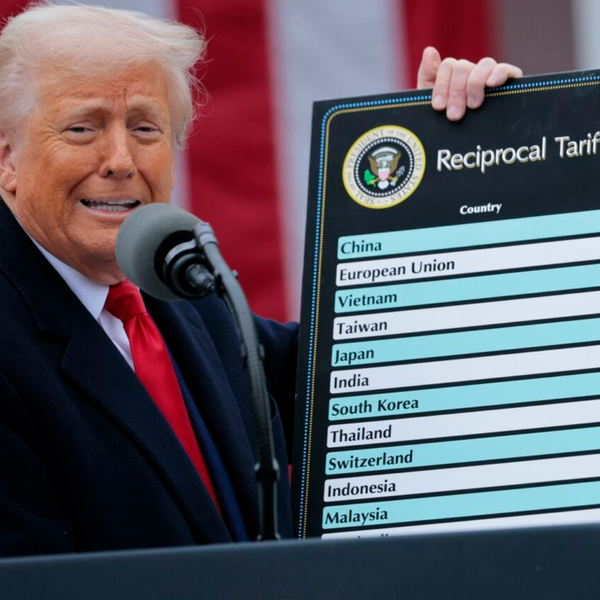The Free Market Op-Ed That Bezos' Washington Post Rejected
The Jeff Bezos-owned Washington Post recently changed its policies on its op-ed page. It replaced most of its former editorial staff and announced a commitment to promoting the free market and free expression.
Many of us have laughed at these ostensible commitments. The Trump administration is probably the most anti-free market presidency this country has ever seen. A president constantly demanding shows of loyalty from private companies is antithetical to free market capitalism. The commitment to free expression also seems dubious in a country where talking honestly about this country’s past or present can be the basis for firing or even criminal charges.
Anyhow, I have often pointed out that many people who ostensibly believe in the free market are just fine with government-granted patent and copyright monopolies, government interventions that transfer trillions of dollars from the rest of us to those in a position to benefit from these monopolies. I joked that the Washington Post op-ed page probably would not be interested in a piece that argued for a free market, as opposed to these government monopolies.
A friend suggested that I write a piece along these lines and see if the Post would take it. I did and they didn’t:
Time for a Free Market in Prescription Drugs
Advocates of “free markets” usually focus on tariffs and government regulations, but they almost never look at the most costly regulations, patents and copyrights. Incredibly, most discussions turn reality on its head and treat these government-granted monopolies as being part of the free market. Powerful interests benefit from these monopolies, but political power does not change reality; patents and copyrights are massive government interventions into the free market.
These monopolies cause problems everywhere, but nowhere is the harm greater than with prescription drugs. The problem of high-priced prescription drugs is entirely an issue of patent monopolies. Drugs are almost always cheap to manufacture and distribute, the reason why some drugs sell for hundreds or even thousands of dollars per prescription, is that the government has granted a patent monopoly.
The patentholder can go to court to stop any competitors from producing the same drug. If their competitor persists, they will face huge penalties, possibly including jail time.
There is an enormous amount of money at stake with prescription drugs. We will spend over $700 billion this year on prescription drugs and other pharmaceutical products. If these drugs were all sold in a free market, without patent monopolies or related protections, they would likely cost less than one-fifth as much.
The difference of $560 billion comes to $4,400 per household annually. It’s more than the cost of the “Big Beautiful Bill.” It’s even more money than President Trump hopes to raise from his tariffs. It is real money by any standard.
But the money at stake is only part of the story. The huge profits drug companies can make from selling drugs at prices in the hundreds or thousands of dollars per prescription, that cost them $10 or $20 to produce, gives them enormous incentive to mislead doctors and the public about their safety and effectiveness.
The most extreme case of dishonest drug pushing was the opioid crisis. The major manufacturers paid out huge settlements over allegations that they deliberately provided misleading information about the addictiveness of the new generation of opioids.
While opioids are an extreme case, the problem of drug companies providing misleading information about their products is well known. Medical journals have long had to contend with ghost-authored articles, where doctors lend their names to pieces written by a person paid by a pharmaceutical company. Similarly, doctors have often taken payments to give talks at medical conferences praising a company’s drugs. With so much money at stake, there is no easy way around this problem.
Also, drug companies routinely game the system to find ways to extend their monopolies and keep out generic competition. And they spend hundreds of millions on campaign contributions and lobbying Congress to make their patents longer and stronger.
Patent monopolies do serve an obvious purpose. They give drug companies an incentive to conduct research and develop new drugs.
This would be a powerful argument for patents if they were the only way to provide this incentive. However, there are alternatives, most obviously just paying for the research upfront.
We already did this to a large extent. Before the cuts put in place by the Trump administration we were spending over $50 billion a year on biomedical research through the National Institutes of Health and other government agencies. Almost everyone familiar with the research considered this to be money very well spent.
While most of this funding went to support basic research, there is no reason that we could not triple or quadruple the funding to include downstream research. It could pay for the development and testing of new drugs, with all new drugs available to be produced as generics in a free market from the day they are approved by the Food and Drug Administration.
This would end the problem of high-priced drugs and also eliminate most of the incentive to mislead the public about the safety and effectiveness of drugs. This risk could be further reduced by requiring that all research be fully open source, with all new findings and test results available on the Internet as quickly as practical.
This sort of system of publicly supported research can be sliced and diced in a thousand different ways. Rather than having a single government agency dishing out the funds, there could be private companies, like our current drug companies, that would compete for long-term contracts (e.g. 10-20 years) to undertake research in different areas.
Dean Baker is an economist, author, and co-founder of the Center for Economic Policy and Research. His writing has appeared in many major publications, including The Atlantic, The Washington Post, and The Financial Times.
Reprinted with permission from Substack.











